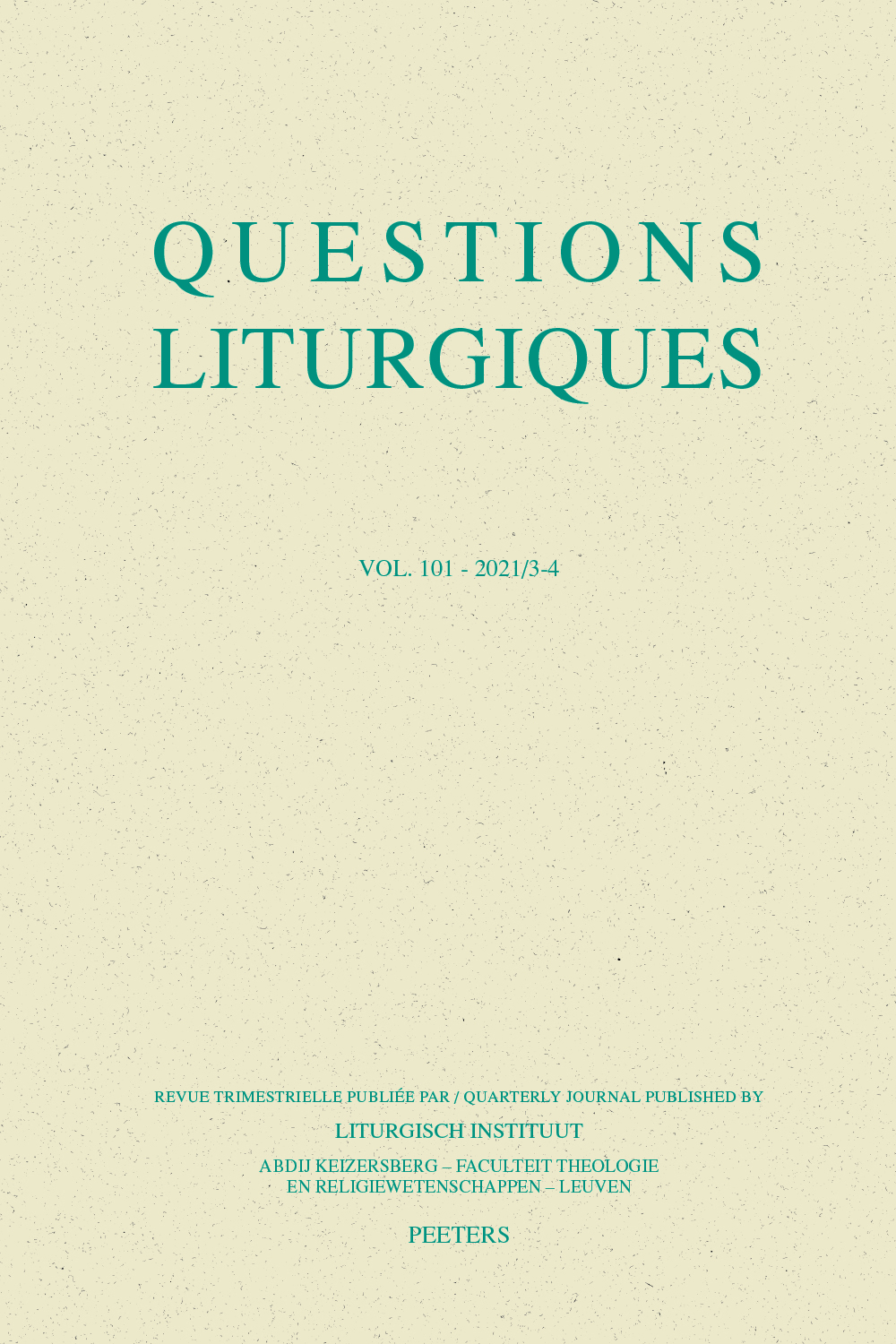 previous article in this issue previous article in this issue | next article in this issue  |

|
Document Details : Title: A 'Great Thanksgiving' Modelled on The Apostolic Tradition Subtitle: A Case for Reception of Eucharistic Multiformity in the Anglican Church of Australia Author(s): DOUGLAS, Brian Journal: Questions Liturgiques/Studies in Liturgy Volume: 92 Issue: 2 Date: 2011 Pages: 112-129 DOI: 10.2143/QL.92.2.2134012 Abstract : This article explores the use of the draft eucharistic texts based on The Apostolic Tradition as developed and trialled by the Liturgical Commission of the Anglican Church of Australia. This article goes on to discuss one linguistic and one theological change which the Australian drafts have made to the text of the original and which stand in contrast to other parts of the Christian tradition. The broader question of multiformity of Eucharistic theology in the Anglican tradition is examined and an approach for liturgical revision is outlined based on recognizing the multiformity of both eucharistic theology and eucharistic texts as a process of reception where dialogue in communion functions to facilitate the acceptance and use of a differentiated consensus. Cet article explore l’utilisation des projets de textes eucharistiques fondés sur La Tradition Apostolique, comme ils ont été développés et testés par la Commission Liturgique de l’Église Anglicane d’Australie. Cet article examine ensuite un changement linguistique et un changement théologique que les projets Australiens ont apportés au texte de l’original; ces changements contrastent avec d’autres parties de la tradition chrétienne. La question plus large d’une multiformité de la théologie eucharistique dans la tradition Anglicane est examinée et une approche pour la révision liturgique est proposée à la base de la reconnaissance de la multiplicité de la théologie eucharistique et des textes eucharistiques également comme un processus de réception. Dans cette réception un dialogue en communion pourrait et devrait faciliter l’acceptation et l’utilisation d’un consensus différencié. |
|
